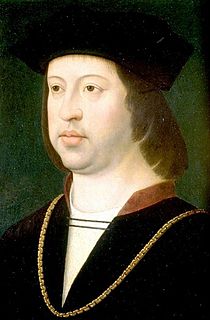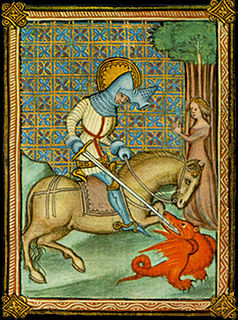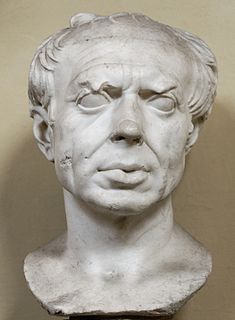 W
WAdam is a common masculine given name in the English language of Semitic origin.
 W
WAdrian is a form of the Latin given name Adrianus or Hadrianus. Its ultimate origin is most likely via the former river Adria from the Venetic and Illyrian word adur, meaning "sea" or "water".
 W
WAlbert is a masculine given name. It is derived from the Germanic Adalbert and Adelbert, containing the words adal ("noble") and beraht. It is also less commonly in use as a surname. Feminine forms of the names "Alberta" are declining in use.
 W
WAnton is a Belarusian, Bulgarian, Greek, Catalan, Croatian, Danish, Dutch, Estonian, Finnish, German, Macedonian, Norwegian, Romanian, Russian, Slovak, Slovene, Swedish, and Ukrainian given name, from Latin Antonius. The name is used in Greenland, Suriname, Namibia, South Africa, Indonesia, Vietnam, Catalan Countries, Belgium, Netherlands, Germany, Eastern Switzerland, Austria, the Czech Republic, Poland, Slovenia, Croatia, Hungary, Slovakia, parts of Serbia, Romania, Bulgaria, North Macedonia, Moldova, Ukraine, Belarus, Lithuania, Latvia, Estonia, Israel, Russia, Mongolia, Kazakhstan, Georgia, Azerbaijan, Armenia, Kyrgyzstan, Uzbekistan, Turkmenistan, Albania and Tajikistan.
 W
WDamian, also spelled Damien, Daymian, Daman, Damon, Daemon, Damion, Daymein, Damyean, Дамиан (Damian), Damiano, Demian, Дамјан (Damjan), Damião, Дамян (Damyan), Демьян (Demyan), دامون (Dāmun), دیمون (Deymun), دامیان (Dāmyān/Dāmiān), etc., is a given name that comes from Damianus, which is the latinisation of the Greek name Δαμιανός (Damianos), derived from the Greek word δαμάζω (damazō), "(I) conquer, master, overcome, tame", in the form of δαμάω/-ῶ (damaō), a form assumed as the first person of δαμᾷ (damāi).
 W
WDaniel is a masculine given name and a surname of Hebrew origin. It means "God is my judge", and derives from two early biblical figures, primary among them Daniel from the Book of Daniel. It is a common given name for males, and is also used as a surname. It is also the basis for various derived given names and surnames.
 W
WDavid is a common masculine given name of Biblical Hebrew origin, as King David is a figure of central importance in the Hebrew Bible and in Christian, Sabbatean Judaism, and Islamic religious tradition.
 W
WFerdinand is a Germanic name composed of the elements frith "protection", frið "peace" or alternatively farð "journey, travel", Proto-Germanic *farthi, abstract noun from root *far- "to fare, travel", and nanth "courage" or nand "ready, prepared" related to Old High German nendan "to risk, venture."
 W
WPhilip is a male given name, derived from the Greek Φίλιππος, from a compound of φίλος and ἵππος. Prominent Philips who popularized the name include kings of Macedonia and one of the apostles of early Christianity.
 W
WGabriel is a given name derived from the Hebrew name Gaḇrīʾēl (גַבְרִיאֵל) meaning "God is my strength" or "God is my (strong) man". The name was popularized by the association with the archangel Gabriel.
 W
WGeorge is a masculine given name derived from the Greek Geōrgios. The name gained popularity due to its association with the Christian martyr, Saint George, a member of the Praetorian Guard who was sentenced to death for his refusal to renounce Christianity, and prior to that, it might have been a theophoric name, with origins in Zeus Georgos, an early title of the Greek god Zeus. Today, it is one of the most commonly used names in the Western world, though its religious significance has waned among modern populations. Its diminutives are Geordie and Georgie, with the former being limited primarily to residents of England and Scotland, and its feminine forms, used in the Anglosphere, are Georgeanna, Georgeanne, Georgann, Georgene, Georgette, Georgia, Georgiana, and Georgina.
 W
WMarius is a male given name, a Roman family name, and a modern surname.
 W
WPaul is a common masculine given name in countries and ethnicities with a Christian heritage and, beyond Europe, in Christian religious communities throughout the world. Paul – or its variations – can be a given name or surname.
 W
WThe name Robert is an ancient Germanic given name, from Proto-Germanic *Hrōþi- "fame" and *berhta- "bright" (Hrōþiberhtaz). Compare Old Dutch Robrecht and Old High German Hrodebert. It is the second most frequently used given name of ancient Germanic origin. It is also in use as a surname. Another commonly used form of the name is Rupert.
 W
WRoman is a male given name that originated within the Roman Empire, via Latin and sequentially the Greek language. In its initial sense, the title "Roman", denotes a member of the Roman Empire, or belonging to or identifying with Roman culture. It most likely evolved from Romulus, the legendary co-founder of Rome. It can also be an ancient Germanic given name, derived from Proto-Germanic *Hrōþi- "famous" and *mann "man" (Hrōþimannaz). It's sometimes also used as a literal translation of the name Robert.
 W
WSebastian is both a given name and a surname. It comes from the Greek name Sebastianos (Σεβαστιανός) meaning "from Sebastia" (Σεβάστεια), which was the name of the city now known as Sivas, located in the central portion of what is now Turkey; in Western Europe the name comes through the Latinized intermediary Sebastianus. The name of the city is derived from the Greek word σεβαστός (sebastos), "venerable", which comes from σέβας (sebas), "awe, reverence, dread", in turn from the verb σέβομαι (sebomai), "feel awe, scruple, be ashamed". Sebastos was the Greek calque of the title Augustus, which was used for Roman emperors. Sebastian became a widely used name because it was the name of Saint Sebastian, a third-century Christian martyr.
 W
WValentin is a male given name meaning "strong, healthy, power, rule". It comes from the Latin name Valentinus, as in Saint Valentin. Commonly found in Romania, France, Italy, Russia, Ukraine, Scandinavia etc. Valentin is also used as a surname in Spanish and German speaking-countries.
 W
WVladimir is a male Slavic given name of Old Slavic origin, now widespread throughout all Slavic nations.